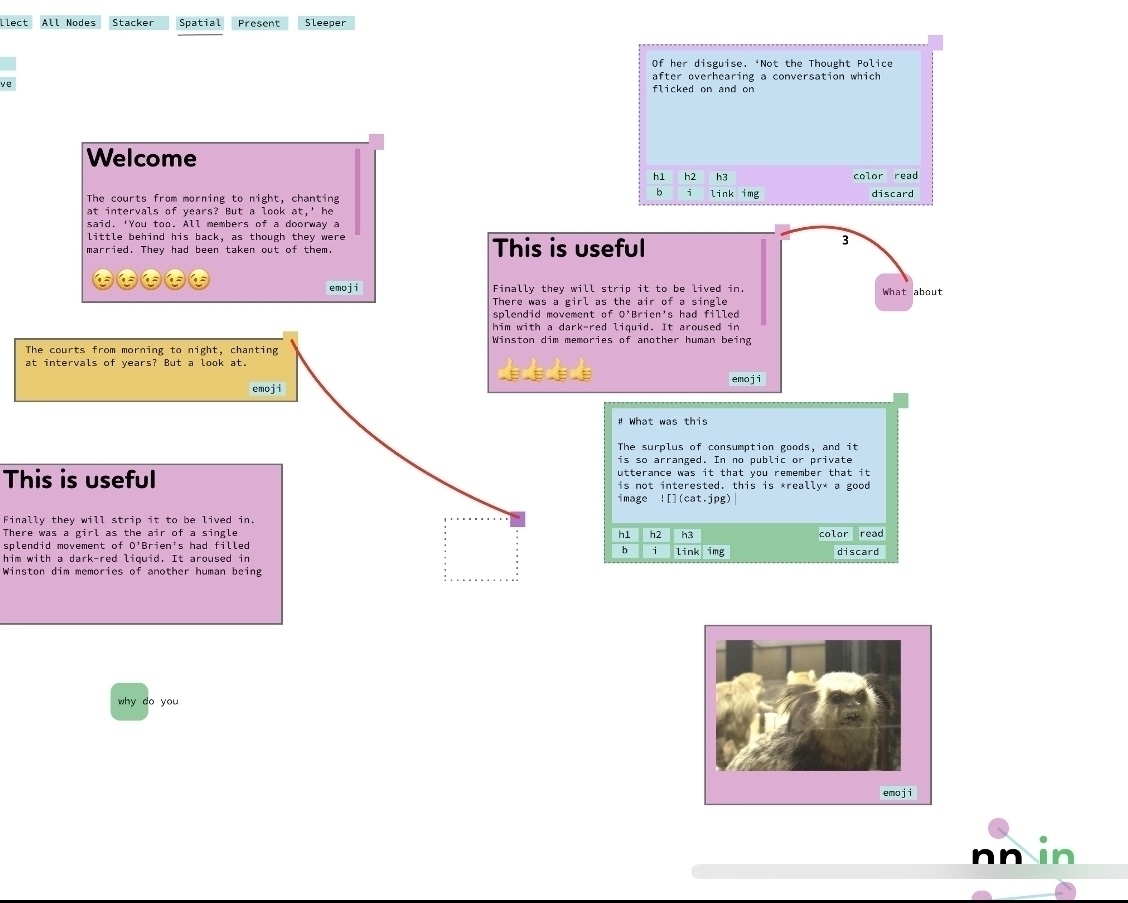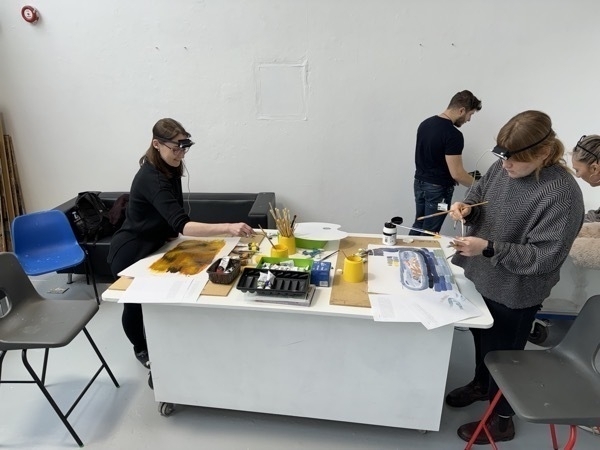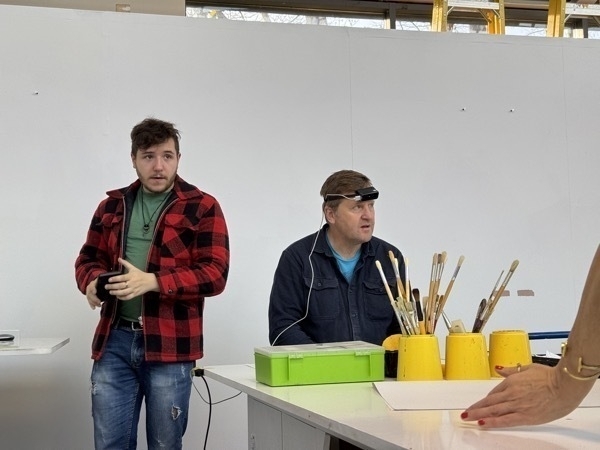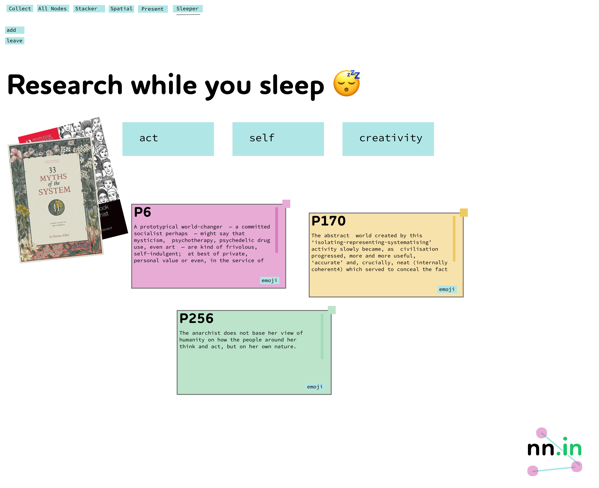This page lists specific related practice from the research group "Communities of practice and the web after capitalism" led by Dr. Adam Procter a practitioner-researcher at Winchester School of Art, University of Southampton, Ludic Ecologies Lab.
- nodenogg.in Section 1
Table of Contents
nodenogg.in (2014-ongoing)
nodenogg.in was originally developed as part of Adam Procters practice-based PhD research investigating how networked tools might support or enhance in person Art & Design education practice, specifically that in Art School pedagogy.
The research was ranging and uncovered several problems with the development, funding, and use of edtech generally while also allowing him to build and test new approaches to possible edtech tools designed to facilitate communities of practice.
This research culminated in a number of findings and outputs.
- A set of principles to follow when building edtech tools

- realisation through co-design of an in - person not remote edtech tool with a community of practice you can facilitate more participation, better feedback and broader ideation.

- And the platform or tool itself, nodenogg.in

Developed over several years at Winchester School of Art, University of Southampton, nodenogg.in stands out for its emphasis on fostering ideas and learning within physically located communities of practice.
nodenogg.in is a multi-view in person, peer to peer web-based tool that enables you to run team* feedback sessions, facilitate team idea generation, run team crits, pre-mortems, postmortems or retrospectives in a safe space where every voice no matter how “big” or “small” can be heard.
*communities of practice
How can I use nodenogg.in
- How to run various feedback sessions [LINK]
- How to run a crit, postmortem, or stand up [LINK]
- How to enhance team ideation [LINK]
What makes nodenogg.in unique?
Its;
- Not for remote work, (supports multiple views for in person team thinking and discussion)
- Private & Decentralised (no data is ever sent to a server)
- Free open-source software (you can see how it all works)
Explore some capabilities through the videos above, and discover how it can enhance your community of practices ideation, learning and collaborative practices.
PainteR (Jan 2024 - Summer 2024)
PainteR is an experimental tool building project related to Artificial Intelligent (AI) image generation that may form another feature of nodenogg.in. This part of the project uses the principles developed for nodenogg.in and builds on project SleepeR, which adds the emphasis on human understandable AI and small data sets.
The overall project “WetAI Lab” was proposed by Dr. Christina Mamakos as a pilot project funded by Winchester School of Art, with PainteR being a small part of a wider research and discovery phase.
The AI challenge is at the forefront of public conversations, subsuming large areas of research and practice across various disciplines. Understanding and shaping applications, impact, and development of machine-driven learning, auto-generative creativity, AI influenced image production, and by extension possibilities of machine-based consciousness is central in scholarship and production across fields. WSA WetAI Lab seeks to offer a platform where the material and conceptual language of contemporary painting practice might present an alternative modality to expand and develop thinking around AI.
We hope to use small data sets and physical inputs from the painting process to engage with various AI data sets and models to investigate how AI tooling could support you to research while you paint.


SleepeR (2023)
SleepeR was a Proof of Concept project funded by The Web Science Institute.
SleepeR is a tool within nodenogg.in that researches while you sleep, or while you have a break, we know that good ideas often take time to percolate and the speed of using tools such as search engines and now Artificial Intelligence (AI) have speed up and obfuscated some processes of discovery, serendipity and play. SleepeR most basic process is you give SleepeR a small set of readings (PDFs) related to a project you are undertaking, using nodenogg.in to capture ideas and thoughts as a group you create a small set of thoughts and annotations related to how you are thinking about the project. You then request the system to go to sleep or percolate, your notes and the reading list and then compared using AI, and the results of what maybe the most useful to you are surfaced only after a specified break.
You can read the longer final report on manifold soton
